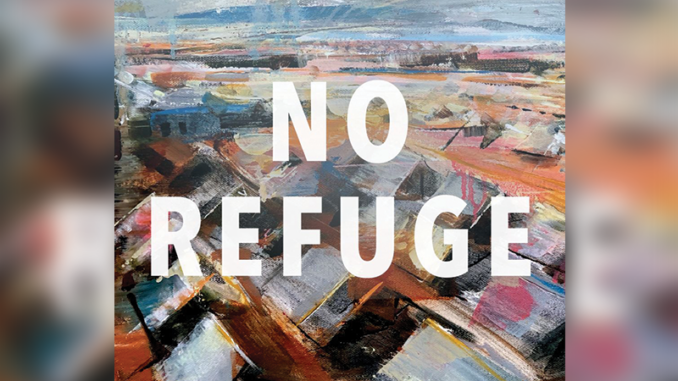
By T’Neil Gooden
As part of continued discussions about immigration, the Wolfe Institution held “Moral Obligations in a World Afraid of Refugees” on Feb. 26.
The talk discussed ways in which Brooklyn College students can learn more about refugees and the hardships they face when coming to the United States. Author, Serena Parekh of “No Refuge: Ethics and the Global Refugee Crisis” spoke with Professor Matthew Launder, a philosophy professor.
Migrants, which include many refugees seeking asylum, have been coming to the United States in big numbers, according to NPR. Parekh began the conversation by explaining how cities in the U.S. have played a role in how they are treated as they are fleeing their homes to come to America.
“In many cities across the US, large numbers of migrants arrived and cities seemed ill-prepared and unable to house, shelter, and place them in homes and provide them with services as they are more or less dependent on whatever government is in place,” Parekh said. “This has caused a lot of strains on social services and backlash against immigrants, where people feel like they have come and taken resources and crowded the population, this is the migrant crisis.”
Before getting into the obligations of refugees within the U.S., Parekh wanted students to get a correct definition to help distinguish the differences between refugees, asylum seekers, and migrants.
The people who have fled their countries are placed into the category of migrants, as that is what many people see them as. However, many of them are not as they are coming to these larger countries searching for contrasting forms of assistance allowing them to be organized as three different types of immigrants.
“A refugee is somebody who goes to another country and waits there. An asylum seeker is somebody who bypasses that third country and goes directly to the country they think should give them refugee status,” Parekh explained. “A migrant is a much larger term that’s used often in the media to talk about all people who are leaving their home countries, some of them will be forced, some of them will be technically illegal refugees or asylum seekers, and others are people who are leaving for a whole host of other reasons.”
Parekh explained that students must retain humility when deciding who is a part of which group when these people have recently fled their country. Taking the time to listen to their stories will let their voice shine through within a larger framework of narratives and generalizations.
After explaining the distinction between these individuals looking for help, Parekh continued her presentation by speaking on how the United Nations and other countries believed they had been assisting these immigrants. In actuality, they are leaving them with false promises of asylum, and not combating the root causes of their displacement.
“One solution is to facilitate voluntary return, which just means the U.N. and various countries will work to facilitate the end to the war and the end of persecution,” Parekh said. “The second option is called local integration, which just means, you’ve crossed your border to escape persecution. Years go by, you fall in love, and you get a job and become a member of society, and the third option, is we still omit the third country and a new country.”
These potential solutions provide immigrants with entrance to these larger countries, however, they have to make a living doing labor for up to 25 years before they can have the certification to try and become citizens. These factors only leave refugees with the hopes of creating a new life for themselves and their families, some never get to experience the day.
Parekh explained three options that refugees can expect when wanting to come to countries with big cities like the U.S. These are options that will leave them with little housing protection.
“One option are refugee camps, the second are urban settlements, and the third is directly seeking asylum,” Parekh said. “Each of these options fails to provide the minimum conditions of human dignity.”
These options that immigrants fall into lead to understanding their motivations for pushing the southern borders and fleeing to any country they can. They believe that even in these conditions there is a chance. Immigrants are purely living in the hopes that they can escape the options that leave them with no human dignity no matter the timestamp.
Interested students in upcoming talks can visit BC Wolfe Institute on Instagram, @bc_wolfeinstitute.
